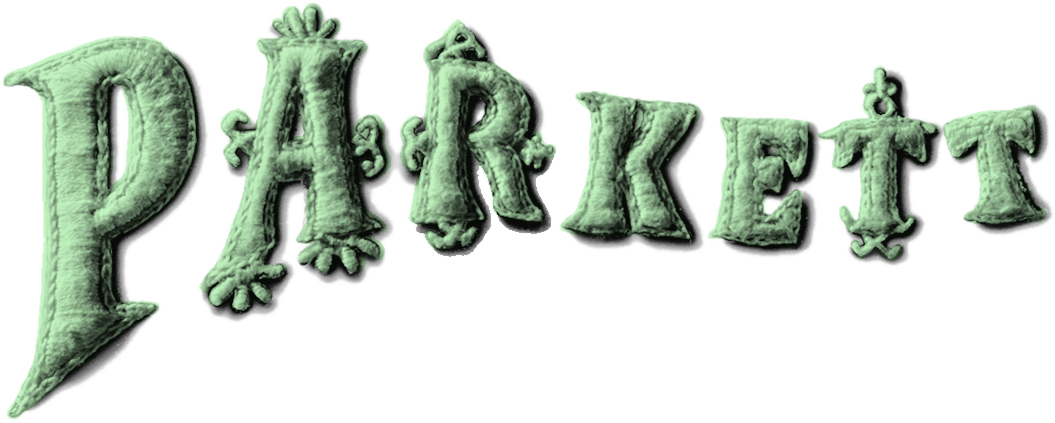 Image 1 of
Image 1 of


Parkett Vol. 71 - 2004 | Olaf Breuning, Richard Phillips, Pipilotti Rist, Keith Tyson
Olaf Breuning
Read a selected text (PDF)
View edition
Richard Phillips
Read a selected text (PDF)
View edition
Pipilotti Rist
Read a selected text (PDF)
View edition
Keith Tyson
Read a selected text (PDF)
View edition
Insert: Dan Perjovschi (PDF)
Cumulus
John Körmeling by Wayne Baerwaldt (PDF)
In praise of dialogue by Paolo Bianchi (PDF)
Miscellaneous:
Fiona Banner by Francis McKee (PDF)
Kiki Smith By Vincent Katz (PDF)
Walter Pfeiffer by Michelle Nicol (PDF)
U.S. & Canada
Please place your order through our distributor D.A.P. here.
Olaf Breuning
Read a selected text (PDF)
View edition
Richard Phillips
Read a selected text (PDF)
View edition
Pipilotti Rist
Read a selected text (PDF)
View edition
Keith Tyson
Read a selected text (PDF)
View edition
Insert: Dan Perjovschi (PDF)
Cumulus
John Körmeling by Wayne Baerwaldt (PDF)
In praise of dialogue by Paolo Bianchi (PDF)
Miscellaneous:
Fiona Banner by Francis McKee (PDF)
Kiki Smith By Vincent Katz (PDF)
Walter Pfeiffer by Michelle Nicol (PDF)
U.S. & Canada
Please place your order through our distributor D.A.P. here.
Olaf Breuning
Read a selected text (PDF)
View edition
Richard Phillips
Read a selected text (PDF)
View edition
Pipilotti Rist
Read a selected text (PDF)
View edition
Keith Tyson
Read a selected text (PDF)
View edition
Insert: Dan Perjovschi (PDF)
Cumulus
John Körmeling by Wayne Baerwaldt (PDF)
In praise of dialogue by Paolo Bianchi (PDF)
Miscellaneous:
Fiona Banner by Francis McKee (PDF)
Kiki Smith By Vincent Katz (PDF)
Walter Pfeiffer by Michelle Nicol (PDF)
U.S. & Canada
Please place your order through our distributor D.A.P. here.
Browse Selected Texts and more on the Collaboration Artists
Artist Insert
Editorial
While Olaf Breuning and Richard Phillips acquire new insights by devoting themselves to the world of forms and aesthetic appearances as “taste analysts,” Keith Tyson, a latter-day uomo universale, strides through complex scientific universes as if he were strolling around in an amusement park. The visual forms and mental peregrinations of these three artists engage cultural borderlines where subjectivity and rationality, sensuousness and cold abstraction are remixed. This volume also features an Insert project by Dan Perjovschi.
Fanciful figures they are, those youthful creatures who stare at us out of Olaf Breuning’s photographs and videos. And yet their sectarian looks, their air of disheveled arcane knowledge, trash archaic civilization and marketing slavery, communicate a disturbing sense of gruff exclusion. Richard Phillips’ oil paintings also elicit contradictory sensations, for they toy with the memory of rejoicing in the visual delight of painting without disguising its dreadfully cloying “anti-matter.” Richard Phillips stoically paints the allegedly lesser aesthetic output of industrialized commercial art, which is no longer in circulation. In contrast, Keith Tyson’s astonishing world models or wonders, as in his series, The Seven Wonders of the World, invite us to participate in cheerful but not easily accessible sciences.
Our anniversary section in this issue features Pipilotti Rist. Having created an edition of herself as a patron saint or an icon that can be carried around like cast-off skin or draped over furniture, she reaches into the depths of many ages and cultures. In addition, the great symbolic power conveyed by her treatment of the body may be seen as an alternative to the images of women in Richard Phillips’ work. Nicolas Bourriaud contributes seven theses to our series of anniversary essays on the “(IM)MATERIAL?”
Is there anything more material than concrete numbers? Anniversaries stimulate statistical considerations. Voluptuously round numbers whet an appetite for the revelation of all the other numerical beauties and insights that slumber within them: numbers reveal exciting imaginative dimensions hitherto buried under well-trodden routine. In the past two decades, 150 artists’ collaborations have been created, and over 1000 essays published and translated from French, Greek, Spanish, Russian, Italian, Dutch, Finnish, Portuguese, Polish, Japanese, and Swedish—simple figures that testify to a long-term project that has left its mark the world over.
And what about the following figures? Since 1984, more than 600,000 single volumes bearing the distinctive PARKETT logo have settled on bookshelves in libraries and private collections all over the world. And supposing we multiply the 180–260 pages per volume by two or three readers each, then the individual collective has read or at least (we hope) enjoyed looking at an impressive total of some 270–390 million pages. That is the stuff that dreams are made of.
Table of Content
Kiki Smith’s Logophilia by Vincent Katz
20 Years of Parkett
Essay by Nicolas Bourriaud, Interview with Pipilotti Rist
Closed Circuit by Anne Söll
Olaf Breuning
See? It is always the same story by Marc-Olivier Wahler
Technician oft the Sacred by Carissa Rodriguez
In Search of Lost Purpose by Gianni Jetzer
Richard Phillips
Out of Time and Place – A Conversation with Diedrich Diederichsen & Richard Phillips
Face All Wrath! by Jutta Koether
Contemporary American Sublime by Christian Rattemeyer
Keith Tyson
Primordial Soups by Michael Archer
It`s like an organic system – A Conversation with Ethan Wagner & Keith Tyson
Fabulous Art by Hans Rudolf Reust
Dan Perjovschi, Insert
Walterday – Walter Pfeiffer by Michelle Nicol
Beyond Words – Fionna Banner by Francis McKee
In Praise of Dialogue, Cumulus from Europe by Paolo Bianchi
John Körmeling : The Freedom in Free Space, Cumulus from America by Wayne Baerwaldt
Sexualized Torture and Breakfast Rolls by Klaus Theweleit





